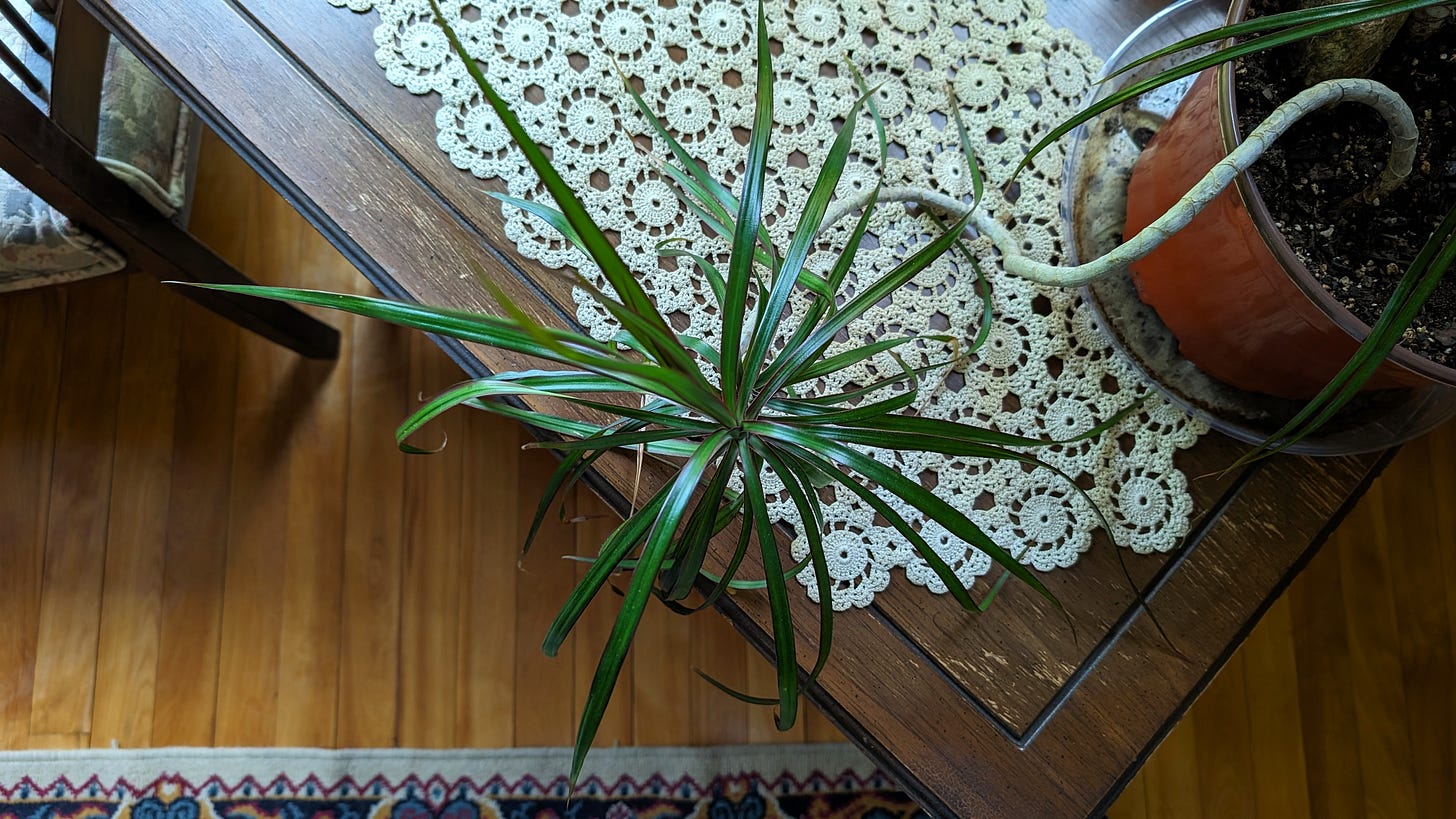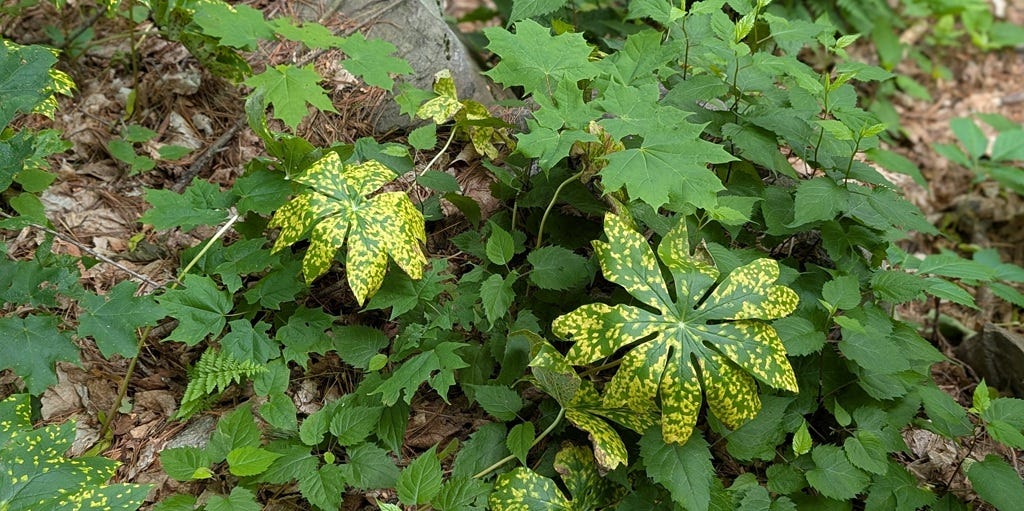What I’m writing about in this series is happening to me as I write. Perhaps the series therefore seems to wander about.
This morning I was thinking about how I've allowed myself to go through this practice of opening to my buried pain and the pain of others. Recently this process became so difficult that I had to leave Quaker worship and go outside.
A young Friend has introduced me to the term "spiritual bypassing.” I know that this has been my defense for much of my life. When I write for this particular blog, the writing won't flow if I stay in that once-removed mode of academic writing. I have to expose my real vulnerability in order to write anything worth posting.
But this is deeper than writing. Visceral. I've always—since childhood—avoided people with insoluble pain. Or tried to find a quick fix and get away. As a young adolescent I tried that with my parents, who were already on a 20-year road to divorce. "How can I make Mommy and Daddy be happy (so I feel safe)?"
This year, though, is a crisis year. Because that habitual dodge doesn't keep me safe. Nothing keeps me safe. I must jump in the water and swim with everyone else.
Pema Chödrön writes:
My teacher Trungpa Rinpoche said, "Whatever occurs in the confused mind is regarded as the path. Everything is workable…."
What seems undesirable in our lives doesn’t have to trigger habitual reactions…. The teachings encourage precision and gentleness, with loving-kindness toward every moment. When we live this way, we feel frequently—maybe continuously—at a crossroads, never knowing what’s ahead.
It’s an insecure way to live…. Basically, the instruction is not to try to solve the problem but instead to use it as a question about how to let this very situation wake us up further rather than lull us into ignorance. We can use a difficult situation to encourage ourselves to take a leap, to step out into that ambiguity.
On a recent Sunday, my husband Jim and I went to do our Quaker meetinghouse chores before worship. I discovered to my dismay that someone had removed from the library three large dracaenas that I had been nurturing ever since Jim became house manager. The plants were outside with the leftovers from our Saturday fund-raiser sale.

I was instantly overcome with anger and hurt and a sense of offended ownership. The intensity and persistence of these feelings was startling. I couldn’t bring myself back under control. The resentful narrative kept recycling. All that turmoil came with me into silent worship. It never really resolved.
At least my thoughts gradually shifted from “I am angry and hurt” to “I feel angry and hurt.” That is was important step. Feelings are basically value judgments. They are pre-conceptual “labels” that our brains assign to the physical emotions triggered by an event. For example, the emotion of fear triggered by sensory perception of danger may present as anger toward someone misperceived as the threat.
Research into the neurobiology of consciousness is teaching us how important of this emotion/feeling distinction is. When I entered worship that Sunday morning, I was still captured by my feelings. That distracted me from going deeper into self-discernment. What had in fact summoned this inner storm? What was it really about?
As with other contemplative practices, Quakers challenge ourselves to listen to our innate inward wisdom, wisdom that precedes everything we are taught from birth on. Quakers know from experience that there is boundless awareness within us. But this awareness is usually distorted by the artificial notions and distractions of human society.
We often call this practice “waiting worship.” There are no promises of specific guidance or solutions. There is simply a trust in the process. The more we quieten our self-created narratives, the more we see of the real world and of ourselves within it.
On this particular Sunday, I tried to sit with my physical emotions without reciting my feelings. Slowly, I began to experience those bodily sensations more deeply, more painfully. Grief is before anything else a physical thing, and I found that it was grief that was flooding me. Far more grief than the moving of three plants could have caused.
What was that nameless thing that I had lost? It wasn’t the loss of the plants. It was the visceral reminder of what nurturing plants does for me. Seventy years on from a vulnerable, closeted childhood, shepherding house plants is still a way for me to create safe private space. That morning I felt bereft of my safe place, in the very Quaker space where I usually find the most safety.
Once I made that inward connection, a window opened. I had a tiny sense of the grief of thousands of families who are losing loved ones to abduction by American state terrorism. The grief of hundreds of thousands of Gazans and West Bank natives displaced or murdered in the American-backed war against Palestinians. And the boundless grief of millions caught in refugee migration and encampments all over the world.
This grief eventually became so difficult to hold that I left meeting quietly and went out to the yards behind the meetinghouse. And my heart immediately became unstuck.

The world is full of plants. They fill every possible niche in profusion. And the world is full of people. Born with the natural capacity and desire to care about each other.
All of these living beings will suffer and die naturally. But human beings also commit astounding cruelties. Breaking up with caring lovers out of self-absorbed ignorance and immaturity. Starving and slaughtering thousands out of bigotry and the lust for more territory.
This groundless, inexplicable reality contains both the wonder, changeability, and impermanence of nature and the compassion, ignorance, and ruthlessness of human beings.
What does Pema mean, “let this very situation wake us up further rather than lull us into ignorance”? How can we cope with all of this without a solid place to stand?
This is so painfully difficult to do. So seemingly hopeless. How do we lift up the sacredness in life when we cannot hold onto it?
I have no sure answers for the next post. I’m trying to find a way to live at this crossroads.
Image sources:
“Song-of-India dracaena,” by Mike Shell (6/15/2024).
“Mayapple,” by Mike Shell (6/15/2025).





Thank you, thank you, thank you for this. For this tender and lovely description of your anger at an immediate hurt opening into the depths of your own grief and the grief of the world, and for the reminder to practice.
Where I am now, living and working with folks with serious mental health issues, I keep having the painful opportunity to be caringly present with other people in the midst of their pain which I cannot fix or take away. And I find that very, very difficult; my instinct is to fix or flee. And I try to tell myself "This is an opportunity to practice," and I tend to answer myself in the voice of an irate two-year-old "But I din't want to practice!" Which is, of course, why I need to... And for the last couple of years, even more so than usual, my country's behavior has prompted a similar unfixable pain, anger, and grief. I still don't feel I am at all good at staying present and keeping my balance. But the attempt has made me untangle some of the fundamental shames/griefs/fears that have bene driving my unconscious choices for a long time now, and brought me a little closer to freedom, to the ability to meet pain (mine, theirs, ours) with clear sight and compassion instead of instant reactivity. I am, in my considered opinion, grateful, though that still is not often how I feel in the moment.
Thank you again.
Dear Mike, this was beautifully written, and it touched me. On a prosaic note, though, I hope you were able to bring the plants back into the Meetinghouse, forgive whoever (in their innocent ignorance, I would guess) put them outside, and maybe put a note about your guardianship of these three. (It also brought up a memory for me that at a Market Day in the '90's, Karen Sargent and I accidentally almost sold a very nice bench from the Meetinghouse grounds for around $15 or $20. Fortunately a Friend who knew better halted the near-sale disaster.)